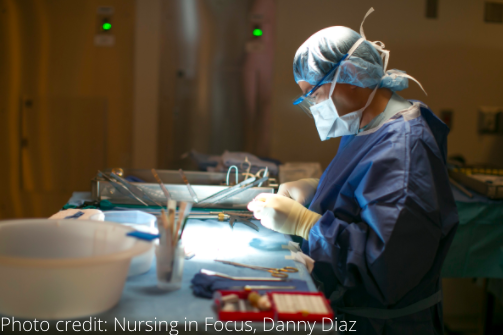
This blog was shared by an Advanced Nurse Practitioner who is working in an A&E department in a hospital in the UK.
I hope I wasn’t the only one who when they first heard of this new viral menace appearing in SouthEast Asia was guilty of a bit of scepticism. It was in early February that I first realised that this was something we might have to contend with. As conversations with colleagues about “Coronavirus” began to multiply there was definitely a resounding sense of “here we go again”. We had seen off SARS, H5N1, H1N1, and MERS, and once again here was the biannual hysteria over an illness we as an Emergency Department team would no doubt see off, just like the rest, without it causing more than a ripple in our lives. How very wrong we were.
Just a few weeks later and my department, the rest of the NHS, and indeed the whole world was on what can regretfully only be described as “a war footing”. All but emergency operations were canceled, outpatient care is now virtually non-existent and hospitals themselves have transformed. The whole nursing workforce has been mobilised to prepare to deal with COVID-19.
Since this is the worst pandemic the world has seen in a century there is no-one in the NHS who has seen anything like this before and we are all learning as we go. Staff are having to contend with the competing instinct to do their bit and help patients in every way they can, with the very real fear that they will be the ones responsible for bringing the virus to those they love. I have become increasingly aware of the toll it is taking on our more junior members of staff, many of whom are being faced with this unprecedented crisis in their first year of qualification. They saw what was happening in Italy and Spain knowing that where those countries led, the UK was destined to follow and, they understandably, wondered how they would cope with the physical and emotional burden they would soon shoulder. How would they manage when faced with caring for someone potentially their own age who needs to be intubated? How would they deal with being on the receiving end of the understandable and heart-breaking distress of other relatives unable to be with their loved one at the end?
In spite of the immense challenges before us, I am actually very optimistic, for one simple reason – all the A&E Departments, not to mention ITUs and wards across the country are staffed by families of people who will always go the extra mile for each other and for our patients. I am truly honoured to count myself as a member of my own A&E family, and I know they will always have my back just like I can promise them I will always have theirs.


